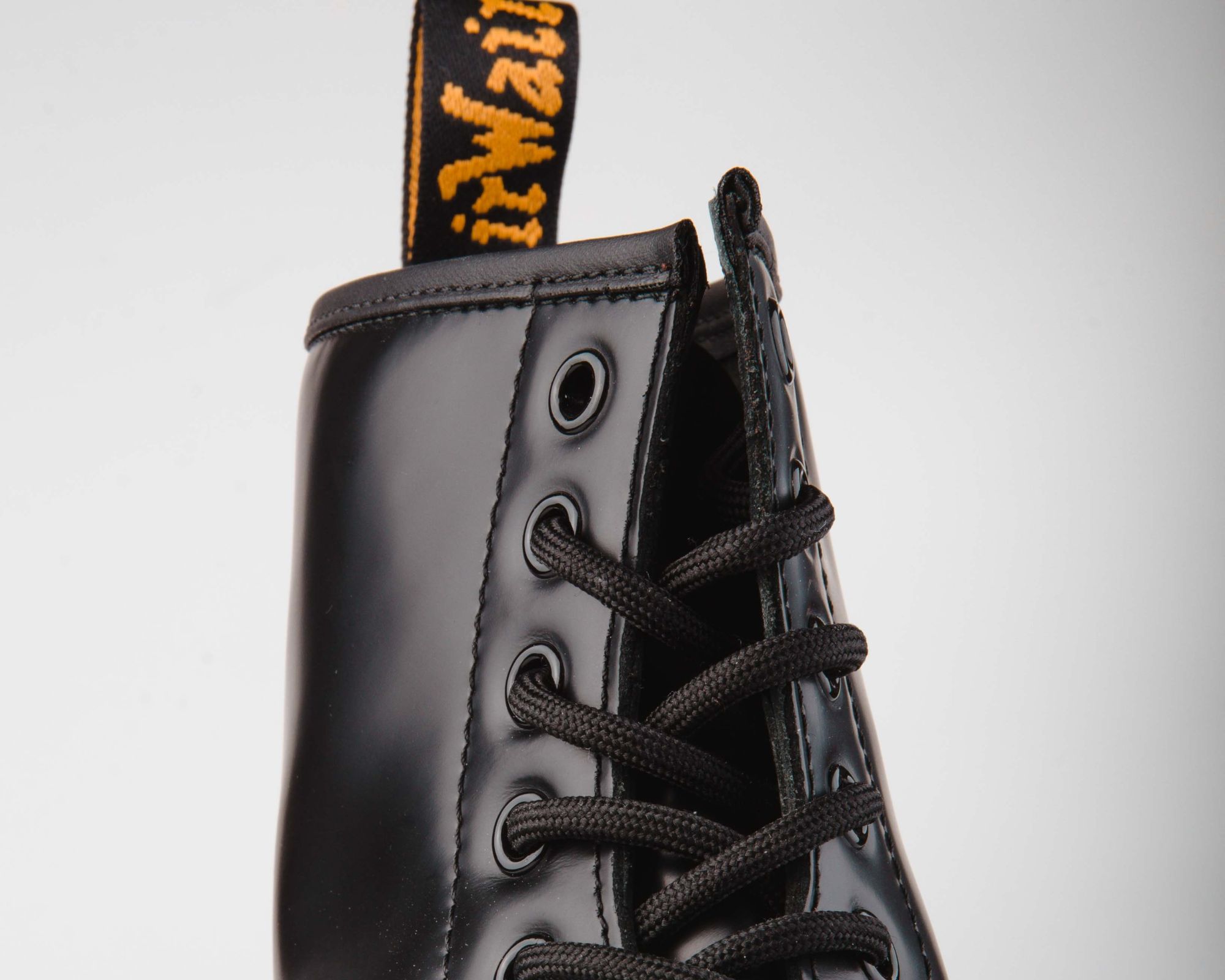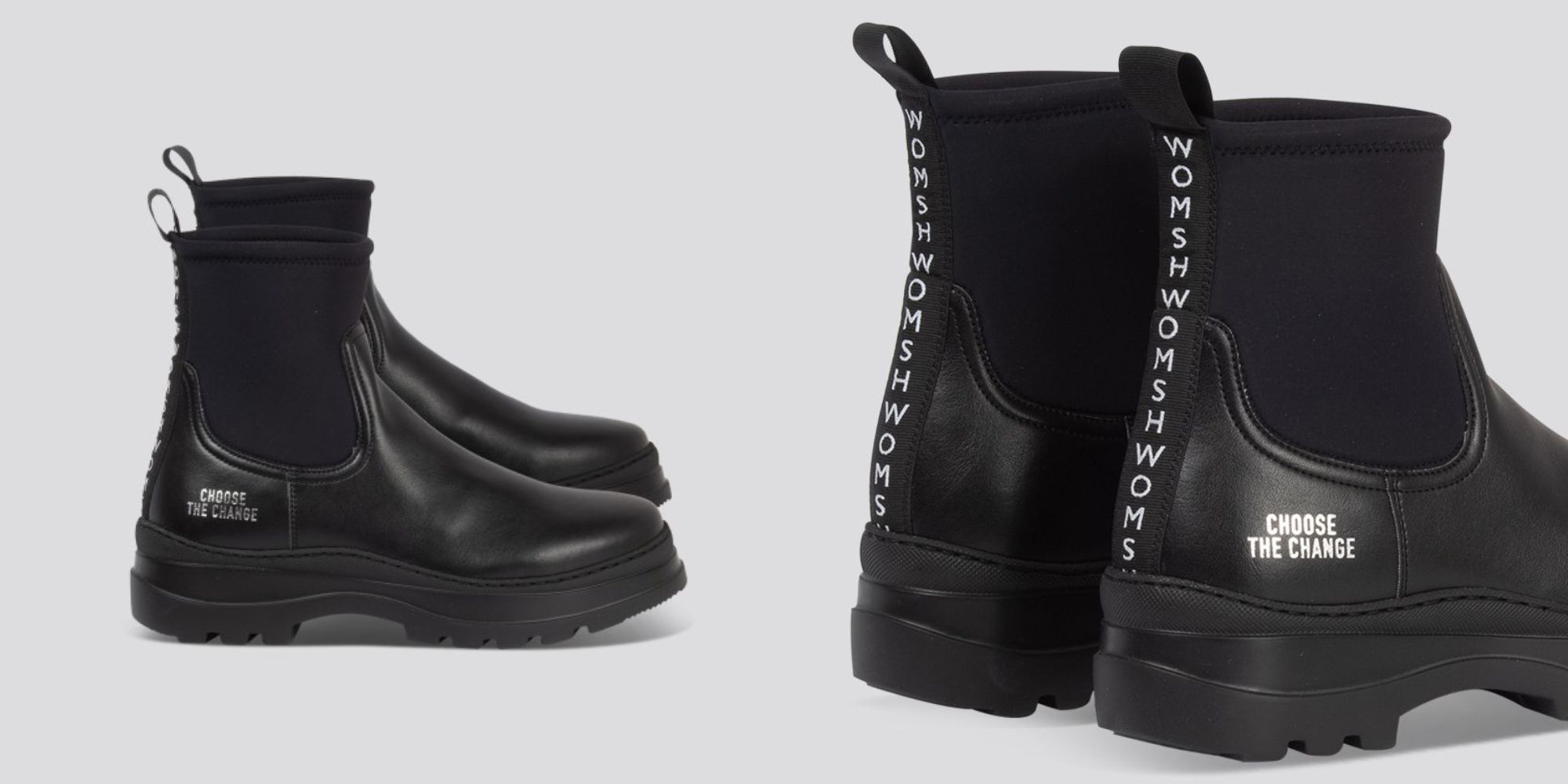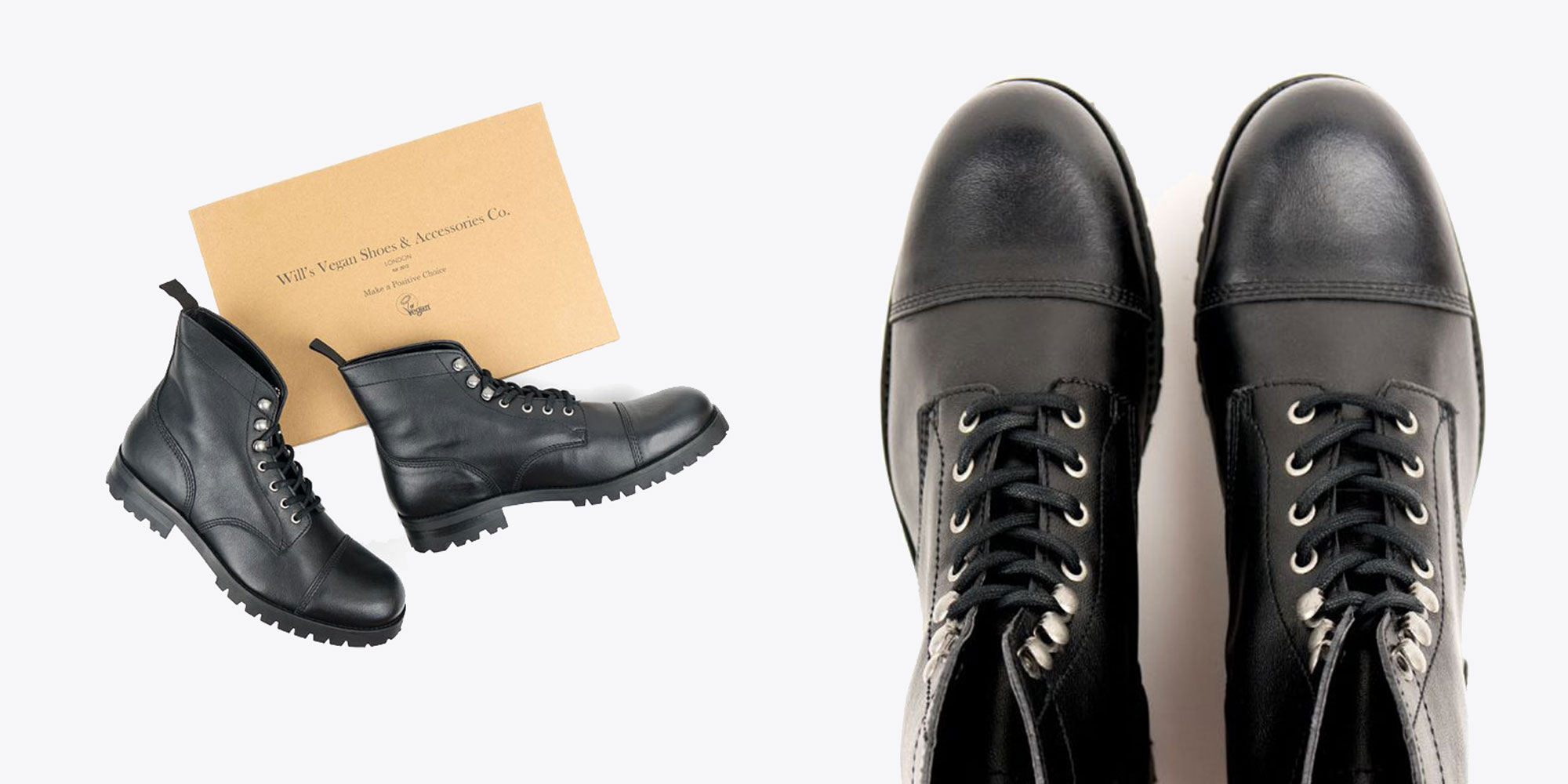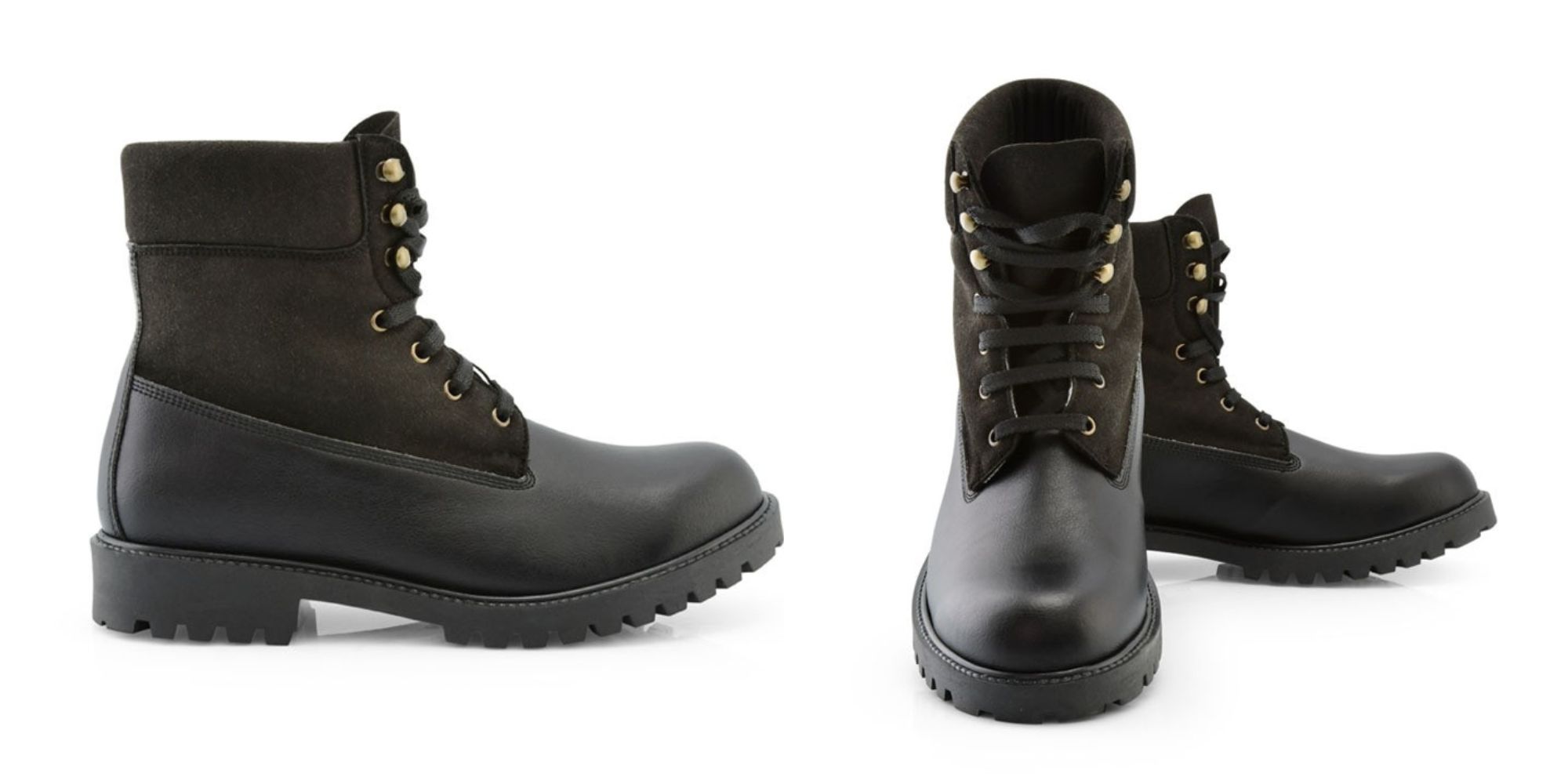Our editors curate highly rated brands that are first assessed by our rigorous ratings system. Buying through our links may earn us a commission—supporting the work we do. Learn more.
Dr. Martens have been kickin’ it across youth subcultures worldwide for decades, but is it working to reduce its impact? How ethical is Dr. Martens? This article is based on the Dr. Martens rating published in January 2022.
Are Docs ethical or sustainable?
From humble beginnings as comfortable boots for housewives in post-WW2 Germany, to one of the most iconic British shoes repped by punks and musicians, and now by many other youth subcultures worldwide. Dr. Martens or “Docs” has certainly had an unforgettable style journey since its appearance in the ’40s. But is this brand ticking the right boxes for people, planet, and animals? How ethical is Dr. Martens?
Environmental impact
Dr. Martens has a lifetime warranty collection and uses packaging from 100% post-consumer waste materials. While these are positive signs, Dr. Martens’ overall impact on the environment is nothing to be proud of. It uses very few eco-friendly materials, with most products being made from resource-heavy leather. Dr. Martens tanneries are audited by the Leather Working Group, but the brand fails to have robust policies and initiatives on energy use, water reduction, as well as carbon and greenhouse gas emissions. This classic brand has a long way to go before it can be put on the environment’s nice list, which is why we rated its environmental impact “Not Good Enough”.
Labour conditions
Docs are being repped by people from all walks of life across the globe, which begs the question—where are they made, and how are the workers treated? Despite being manufactured in the UK for close to 50 years, in 2003 production was moved to China and Thailand to avoid bankruptcy. These countries have a high and extreme risk of labour abuse. A plus is that some of its supply chain is certified by Workplace Condition Assessment (WCA), including all of the final stage of production, but there is no evidence Dr. Martens implements practices to support diversity and inclusion in its supply chain. It received a low score of 11-20% in the 2021 Fashion Transparency Index. It discloses partial policies and safeguards to protect suppliers and workers from the impacts of COVID-19. Most importantly, there is no evidence Dr. Martens ensures payment of a living wage in its supply chain.
By operating with a fast fashion model, Dr. Martens is “Not Good Enough” for people, too. Dr. Martens has much more work to do to ensure that its workers are treated with the respect and care they deserve.
Animal welfare
Dr. Martens does not use fur, angora, down, or exotic animal skin. It does, however, use leather and wool from non-mulesed sheep. The brand has a formal animal welfare policy aligned with Five Freedoms, and it traces some animal products to the first stage of production. But without being fully transparent about where the animal products come from, it’s hard to gauge the treatment of animals along the supply chain.
One thing to commend Docs for—from an animal welfare point of view—is the introduction of a vegan line, made from 100% non-animal origin materials. However, it labels the material as “a non-leather synthetic material”, without going into details. This could be made from Polyvinyl Chloride (PVC) plastic, which Greenpeace lists as one of the most environmentally-damaging plastics. We’d love to see more transparency about the choice of materials. There are so many amazing eco-friendly leather alternatives out there and it would be fantastic to see big brands embracing them.
Dr. Martens’ animal rating is “It’s a Start”.
Overall rating: Not Good Enough
Dr. Martens has received a rating of “Not Good Enough” overall, based on information from our own research. While the brand is making a start in animal welfare, it’s got a lot of work to do to improve its impact, especially when it comes to labour and the environment.
Note that Good On You ratings consider hundreds of issues, and it is not possible to list every relevant issue in a summary of the brand’s performance. For more information, see our How We Rate page and our FAQs.
Luckily, many amazing sustainable and ethical alternatives to Dr. Martens are popping up every day. Have a look at a few of our favourites below.
Good swaps
“Good” and “Great” alternatives to Dr. Martens


























